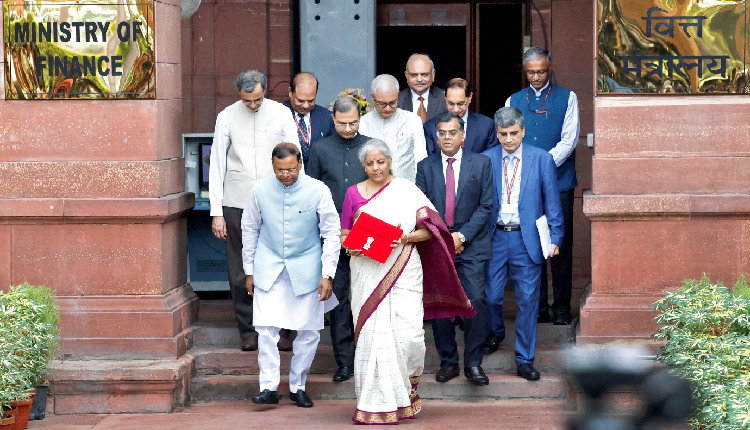Indian Finance Minister Nirmala Sitharaman announced on Tuesday an increase in taxes on equity investments and derivatives, causing stock markets to drop.
The tax rate for equity investments held for less than a year has been increased to 20 per cent from 15 per cent, while the rate for shares held for more than 12 months has risen to 12.5 per cent from 10 per cent.
Additionally, the securities transaction tax on futures trading has been doubled to 0.02 per cent, and the tax on options has been raised to 0.1 per cent from 0.0625 per cent.
Following the announcement, India’s benchmark indexes, the NSE Nifty 50 and S&P BSE Sensex, fell by approximately 1 per cent by 12:26 pm IST.
Trideep Bhattacharya, chief investment officer at Edelweiss Mutual Fund, described the tax changes as a short-term negative for the market. However, he added that the increase would bring more rationality to the trading and encourage long-term investing.
India’s stock market has seen a dramatic surge of over 200 per cent since its COVID-19 lows in March 2020, largely attributed to a massive influx of retail traders into the derivatives market.
Retail investors now account for 41 per cent of derivative trading volumes, up from just 2 per cent in 2018. The monthly notional value of derivatives traded reached a staggering 9,504 trillion rupees ($113.60 trillion) in May, according to data.
The increased regulatory scrutiny of derivatives trading, including warnings from the market regulator about associated risks, has led to the government’s decision to raise taxes on futures and options.
Sunil Gidwani, partner at tax firm Nangia Andersen, stated that the tax hikes align with the government’s concerns expressed in the economic survey and the regulator’s worries about speculative trading.
Attribution: Reuters


